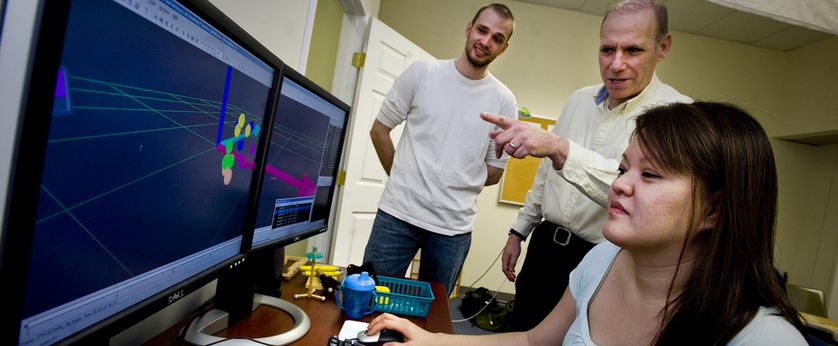Psychology examines the way people think and behave, understanding the underlying factors in human interaction. In this way, psychology is a very broad field with many specialties. Applied psychology is one of the most practical specialties. In applied psychology, psychological theories are used to solve problems in the real world. In essence, applied psychology takes theory and puts it into application for the benefit of humankind.
What Does an Applied Psychologist Do?
Although applied psychology is a broad field, all such professionals will be focused on practical applications. Applied psychologists must be committed to solving problems. To do this, they must first be able to identify problems using psychological theories. Once problems in behavior or thinking are identified, it is up to the applied psychologist to create workable solutions. These solutions could rely on any number of psychological or scientific methods. In some cases, applied psychologists may train individuals to alter their thinking or behavior. In other instances, they may create systems or policies to promote positive outcomes. Therefore, applied psychologists often provide ongoing care for people, but they may also create preventative programs to help larger groups achieve success on a wider scale.
Careers in Applied Psychology
Applied psychology has numerous applications, which is why there are so many career options to consider. Some applied psychologists may work as clinical psychologists or as professional counselors. They may also pursue positions with mental health institutions or in other healthcare settings. In these positions, applied psychologists often work with patients in a one-on-one setting. However, applied psychologists may also find jobs in business or education. In these settings, applied psychologists often work to create policies or to structure the work environment. They may even be able to help with product design or marketing, using psychological principles to maximize the effectiveness of a product or ad campaign. Other possible careers include forensic psychology, sports psychology, organizational psychology and more.
Obtaining an Applied Psychology Degree
Psychology is a popular undergraduate major, and many psychology course programs include classes in applied psychology. Some schools may allow undergraduate students to pursue a specialization in applied psychology. However, many students with a keen interest in applied psychology go on to finish work at the graduate level. Advanced study options vary from school to school, but it is worth noting that individuals who wish to pursue careers in clinical settings often need a doctoral degree in order to be qualified. These types of advanced degrees not only include extensive study, but they may also include research, clinical practice and published work. An applied psychology degree may also be obtained alongside other psychology specializations, allowing students to further customize their coursework for future career success.
When you are thinking about pursuing a degree in applied psychology, you should consider your career goals before applying. You need to make sure that your educational pursuits match your ultimate career plans. Whatever career option you wish to pursue, an applied psychology degree can be an excellent way to get you there.








 Degrees Offered
Degrees Offered












